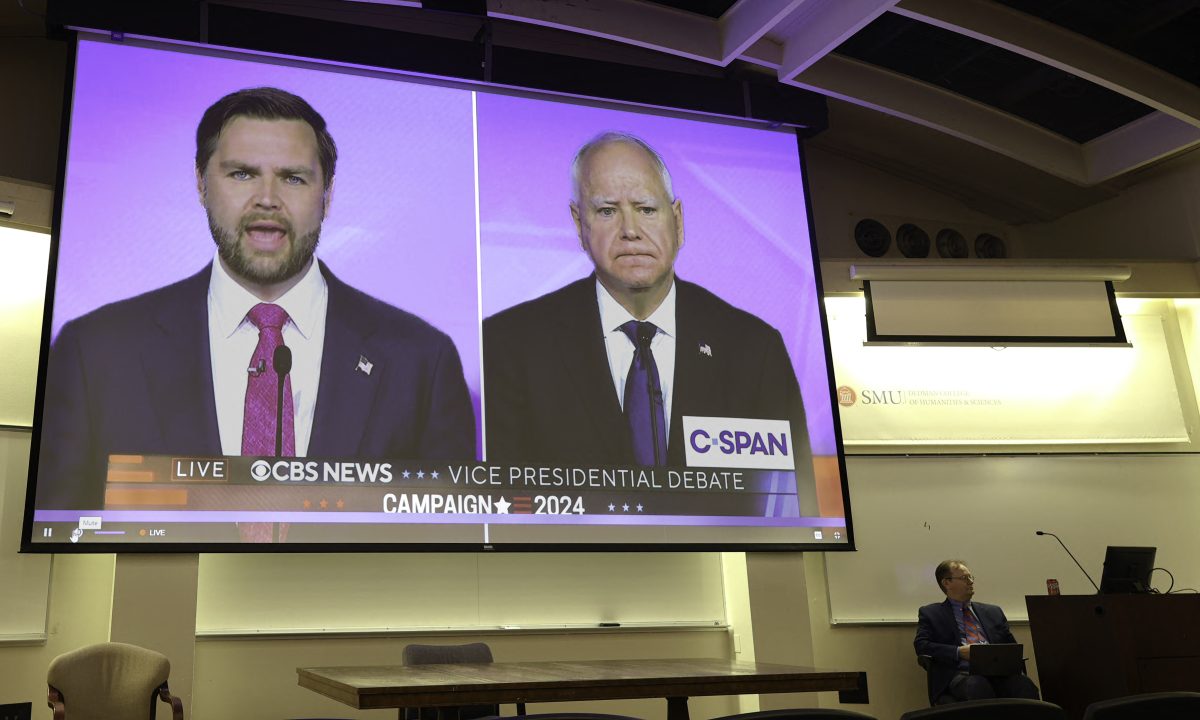Both critics and supporters of the Bush Library are aware that SMU has recently come under scrutiny by the Institute for Religion and Democracy. An op-ed article by that group’s director, Mark Tooley, follows an earlier op-ed critique of the Institute’s attack on Protestant denominational leaders. It is well that folks at SMU understand the Institute for Religion and Democracy. IRD plays religious and political hardball. With the almost assured arrival of the George W. Bush Library and Institute, we’ll probably hear more from and about this group in days to come.
Formed in 1981, the IRD by its own admission made its debut as the red-scare public opinion “education for democracy” mill of the Reagan-era’s clandestine assault on Nicaraguan peasants and political institutions. They became the unofficial publicists for the once-clandestine, U.S.-supported, Honduras-based mercenary group known as “Contras.” Remember the Contras?
IRD would have us believe that theirs is a religiously motivated grassroots effort among Methodist, Episcopalians and Presbyterians. While they do plead for disgruntled church members to send their congregations’ membership directories to their office in Washington, they are hardly “grassroots” and are in no way representative. The vast bulk of IRD’s support comes neither from “grass-root Christians” nor from religious organizations at all. Primary funding for IRD comes from non-church far-right-wing secular foundations such as the Scaife, Olin, Richardson and Bradley funds. Leaders of these foundations have provided millions of dollars for IRD’s campaigns against mainline Christian denominations. Interestingly, Scaife underwrote more than $2 million of the costs of the “Arkansas Project,” the unsuccessful eight-year attempt to harass President Bill Clinton into leaving the office of the president.
In the ’80s, before targeting mainline U.S Protestant churches and their leaders for their social justice commitments, IRD crusaded against the evils of child health care projects, land reform, literacy education, and other such “socialist-inspired” community-based programs in post-Somoza Nicaragua. In both Nicaragua and El Salvador, Christian missionaries became IRD’s targets first for verbal bashing and then for lethal Contra violence.
IRD put money behind more than pamphlets, providing encouragement to mercenary units operating across Honduras’ southern border. IRD proved to be Elliot Abrams’ answered prayer: a U.S.-sanctioned, religious front, not-for-profit PR conduit for President Reagan’s off-book and unconstitutional “black” war effort in Central America. Perhaps IRD never asked “what might Jesus do?”
IRD then turned its energies to sowing division in mainline churches in the U.S. Apparently these days IRD has SMU on its radar screen. IRD commits a hefty $400,000 annually to deconstructing my denomination, the United Methodist Church. They call this effort is “reform,” a euphemism for what moral and ethical Christians consider institutional vandalism. SMU’s historic commitment to academic freedom, intellectual honesty, scientific inquiry, and liberal education makes us an attractive and potentially vulnerable target.
Religion and politics have always shared close sleeping quarters, but since that ’80s era black-war debacle erupted into “Iran-Contra-Gate” IRD has reveled in this conjugation. They’ve become true denominational bandits. With ample secular cash to seed tiny pockets of disgruntled or frustrated Christians scattered throughout mainline American Protestant denominations, they sow dissention, distrust, and rancor loudly. Distinguished University Professor at the University of Chicago, Martin E. Marty notes that IRD “has spent millions of dollars over 20 years attacking mainline denominations…by spreading misleading information and incendiary allegations….”
IRD’s principal dispute with mainline American Christianity seems to be the churches’ persistent commitment to biblically prophetic social ethics and Jesus’ concern for all persons: perspectives IRD cannot abide. Notably, a significant number of U.S. senators and representatives identify with progressive mainline denominations. Politics, not theology as IRD would publicly claim, drives IRD’s efforts. Their stated goals are laced with convenient justifications about rescuing church folk from wrong-thinking church leaders. These days IRD attacks United Methodist, Presbyterian USA, and Episcopalian clergy, bishops and agency staff, as well as lay folk who get in their way, with crusading ferocity.
Methodists, Episcopalians and Presbyterians merit individual IRD advisory boards and hefty operations budgets. IRD’s intellectual founders are ultra-conservative Roman Catholic males whose own radical theologies attract relatively few followers across the Roman Catholic communities of America. A couple of disgruntled ultra-conservative Methodists share founding responsibility as well. Their politics manifest in the “wedge issues” of the far religious right which IRD nuances to suit particular application in each targeted mainline denomination. IRD’s intellectual principal, Richard (“Fr. Richard”) John Neuhaus, is well-known as President Bush’s own pastor-on-call. He is a former-Lutheran-now-Roman Catholic cleric who visits the White House to advise the president on “religious things,” according to the president himself. Some may regard IRD as just another right-wing think tank with a provisional/tactical arm. They’d like us to believe that they are “mainstream Methodist (or Presbyterian or Episcopalian), but there is nothing centrist about IRD: neither their message nor their methods, certainly not their operational ethics nor their funding. Dr. Marty was right on target.
Like as not, IRD will join other groups of greater visibility on the periphery of the academy if and when Bush’s Library complex comes to campus. According to The Dallas Morning News, IRD is quite interested in seeing the university’s currently-extended invitation formalized, despite Mr. Tooley’s disclaimer. IRD’s self-insertion into the conversations currently underway at SMU portends much broader interest by similar institutes likely to cluster around Bush’s Institute for Democracy wherever it is located. Irrespective of the kind of welcome IRD finds on campus, it’s certain they’ll be watching us and taking notes. It might be wise to sharpen our understanding of academic, intellectual and political freedom as well as the relevance of SMU’s United Methodist Heritage while keeping our own eyes open and alert.
William M. Finnin, Jr., Th. D. is Chaplain and Minister to the University. He can be reached at [email protected].








